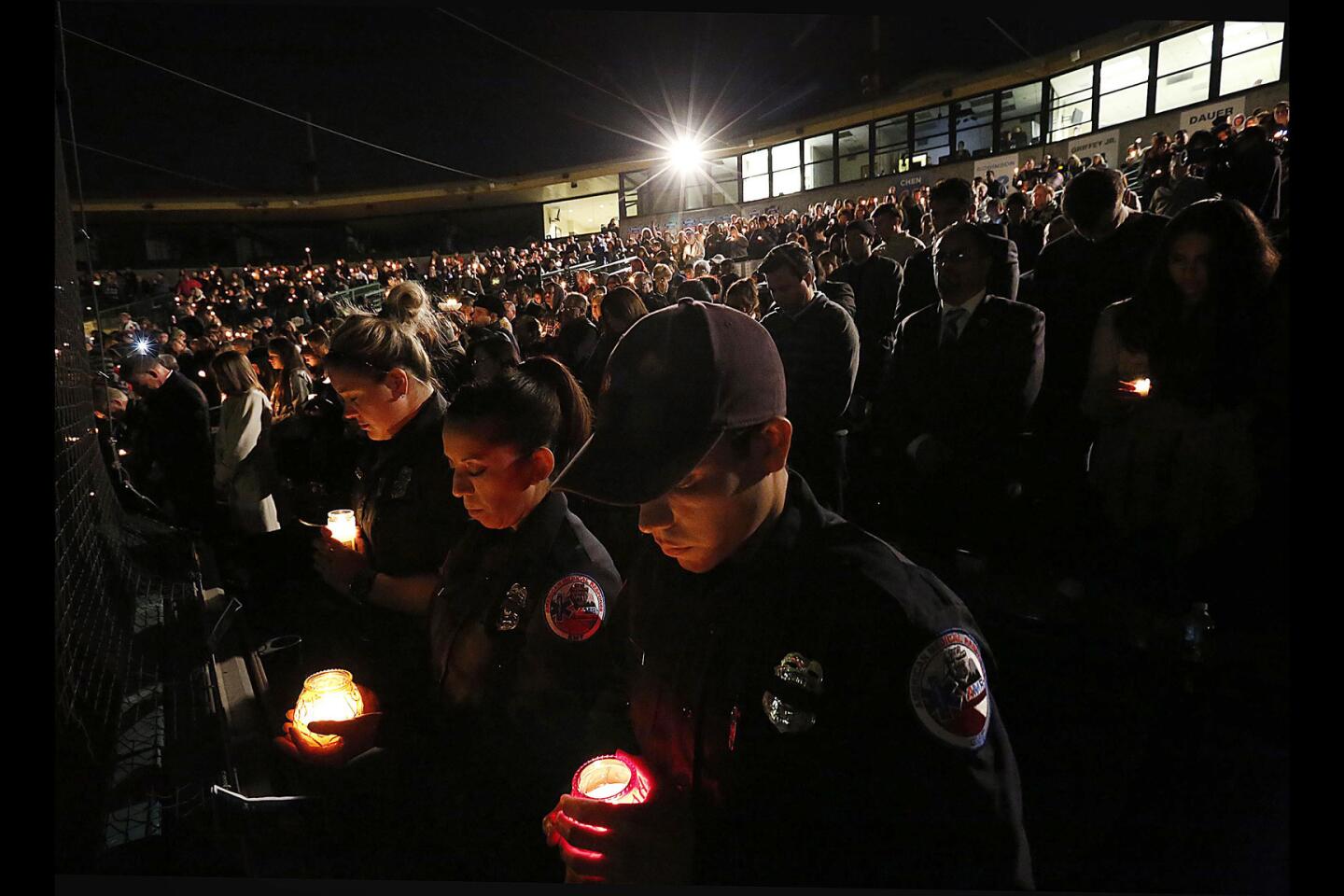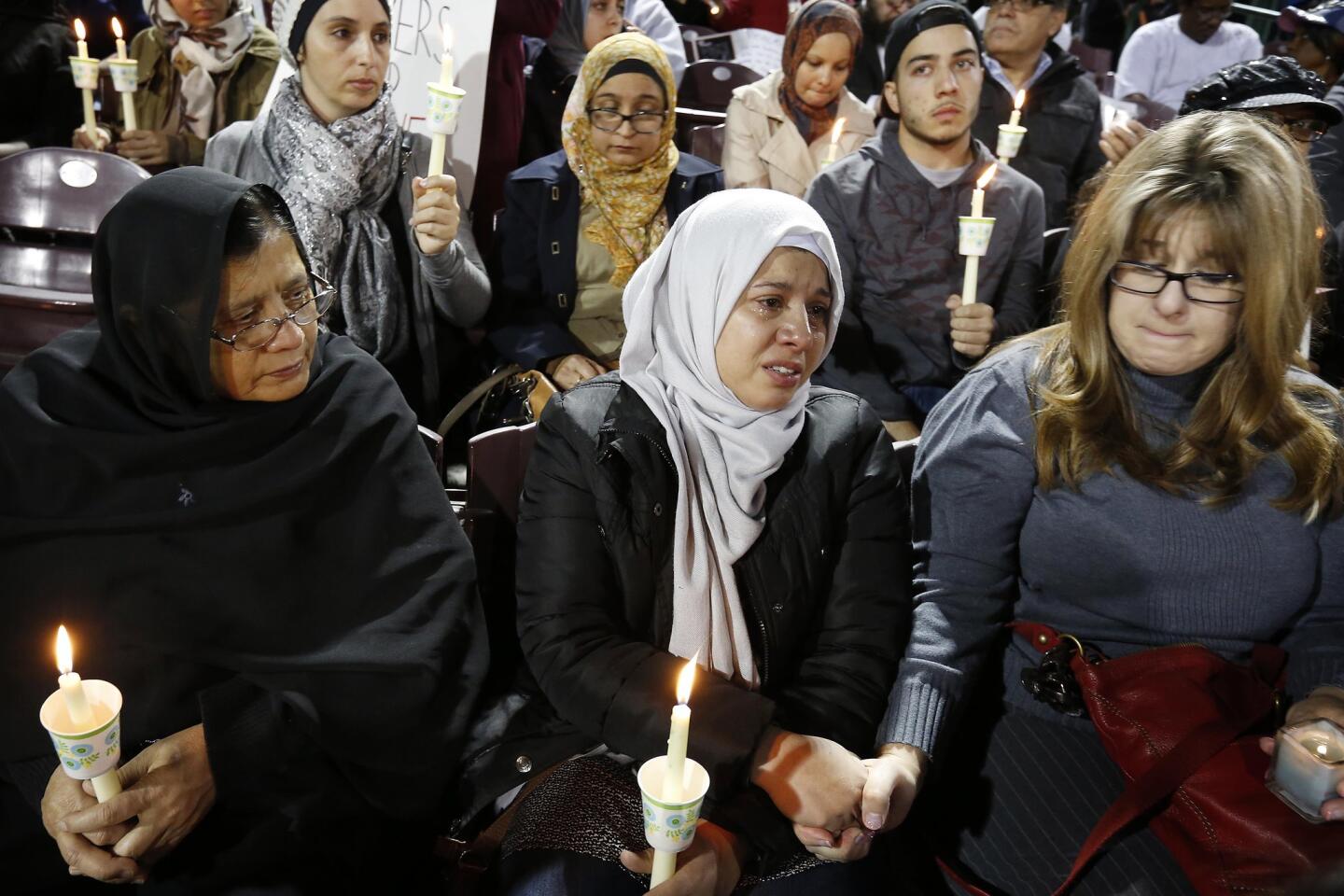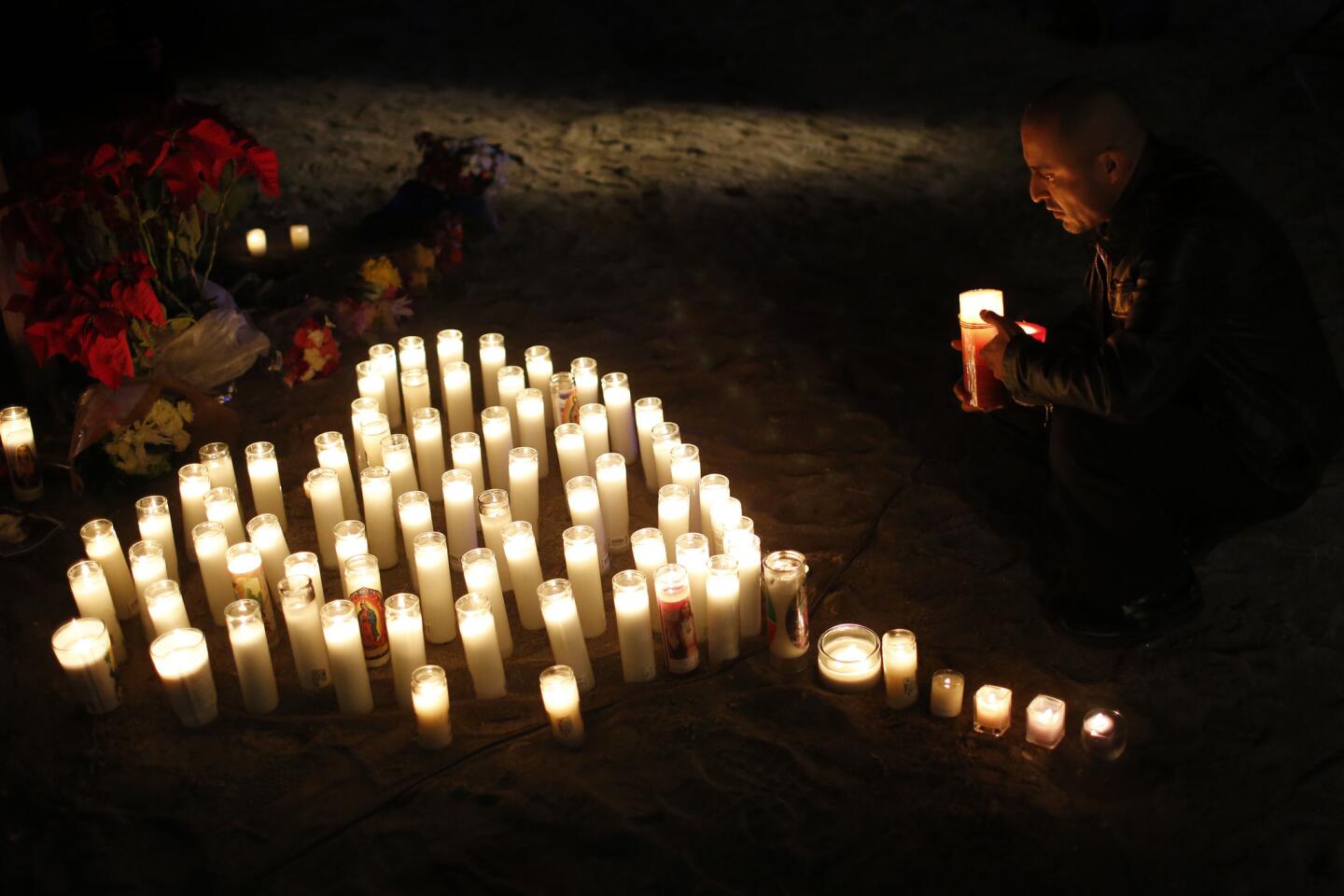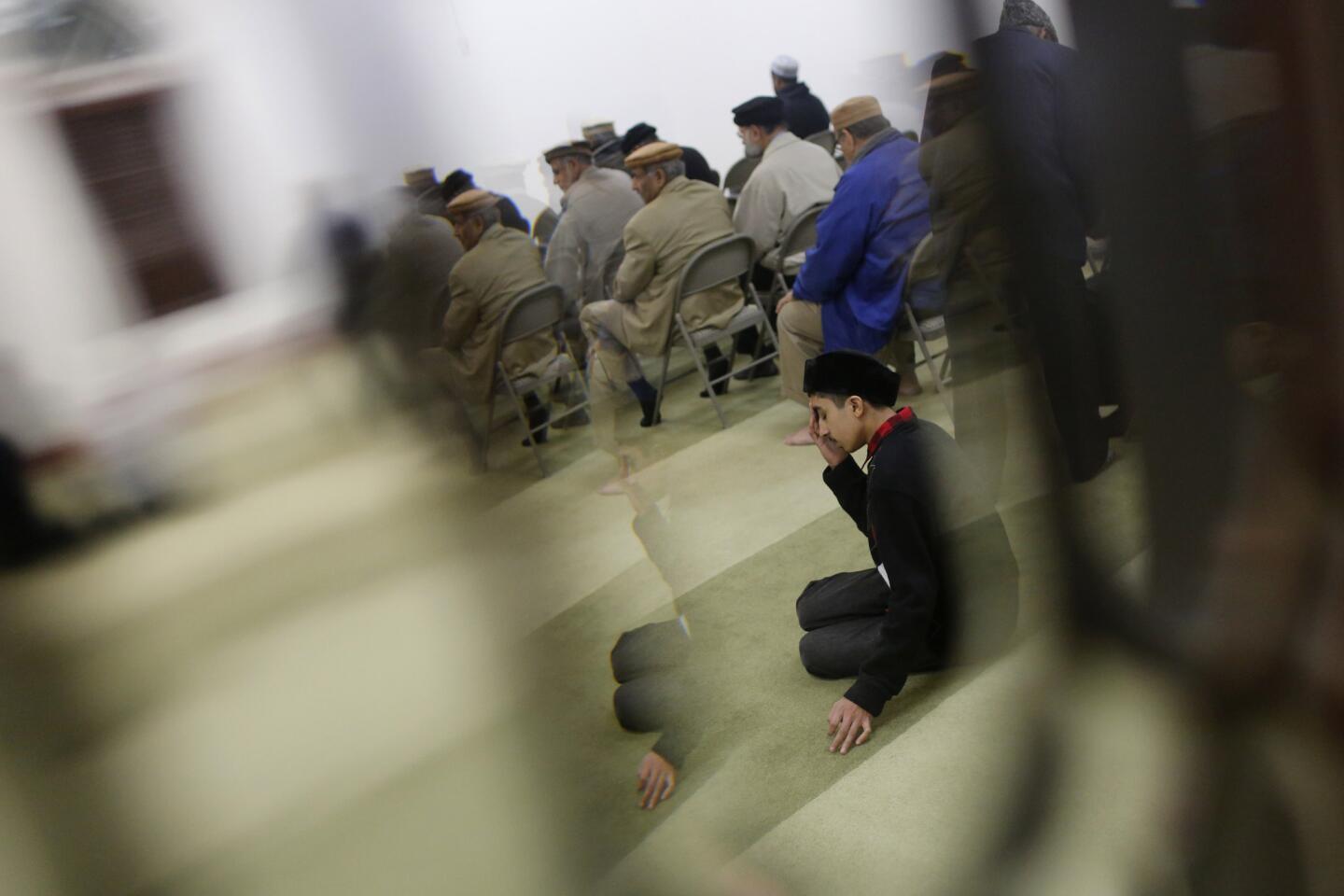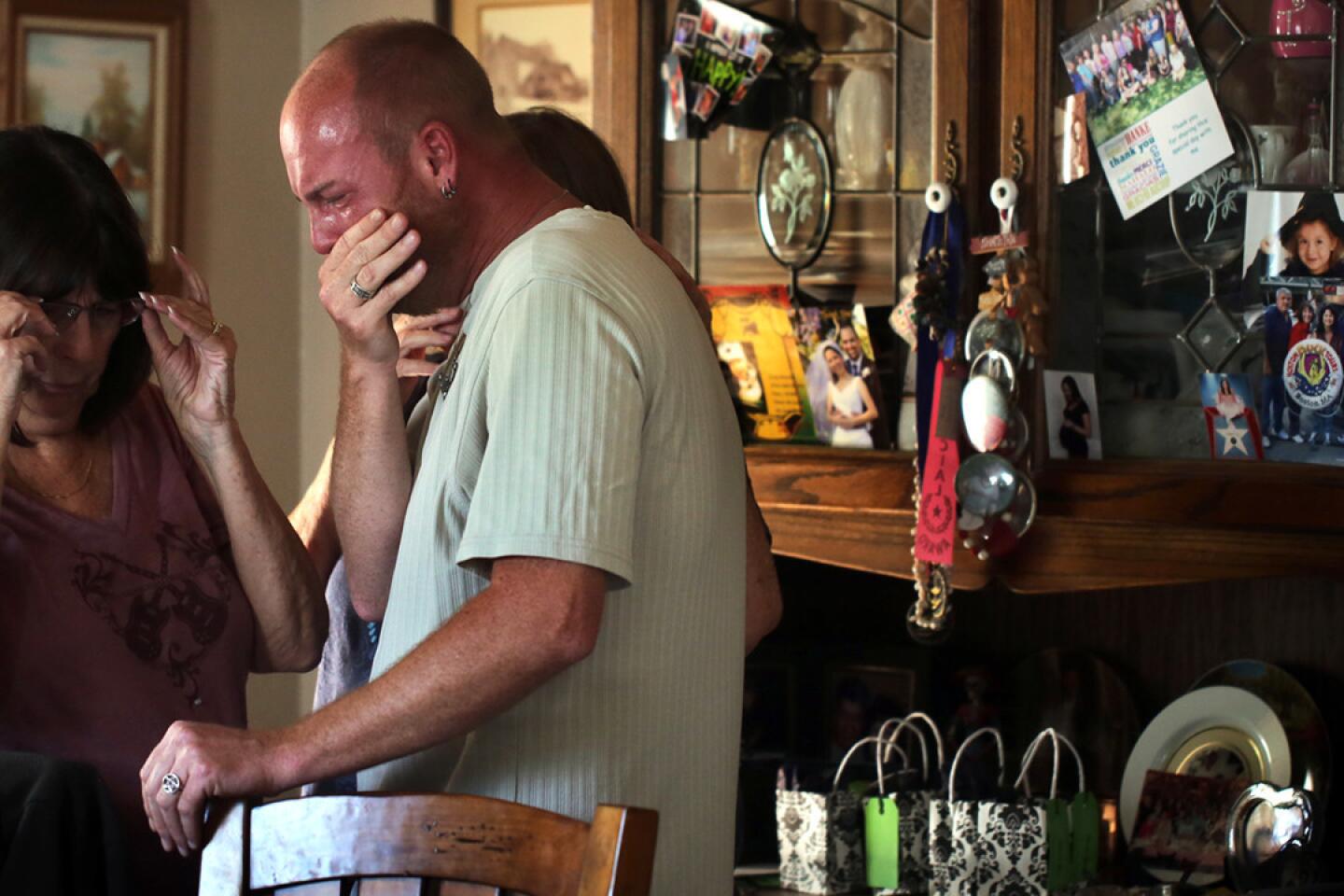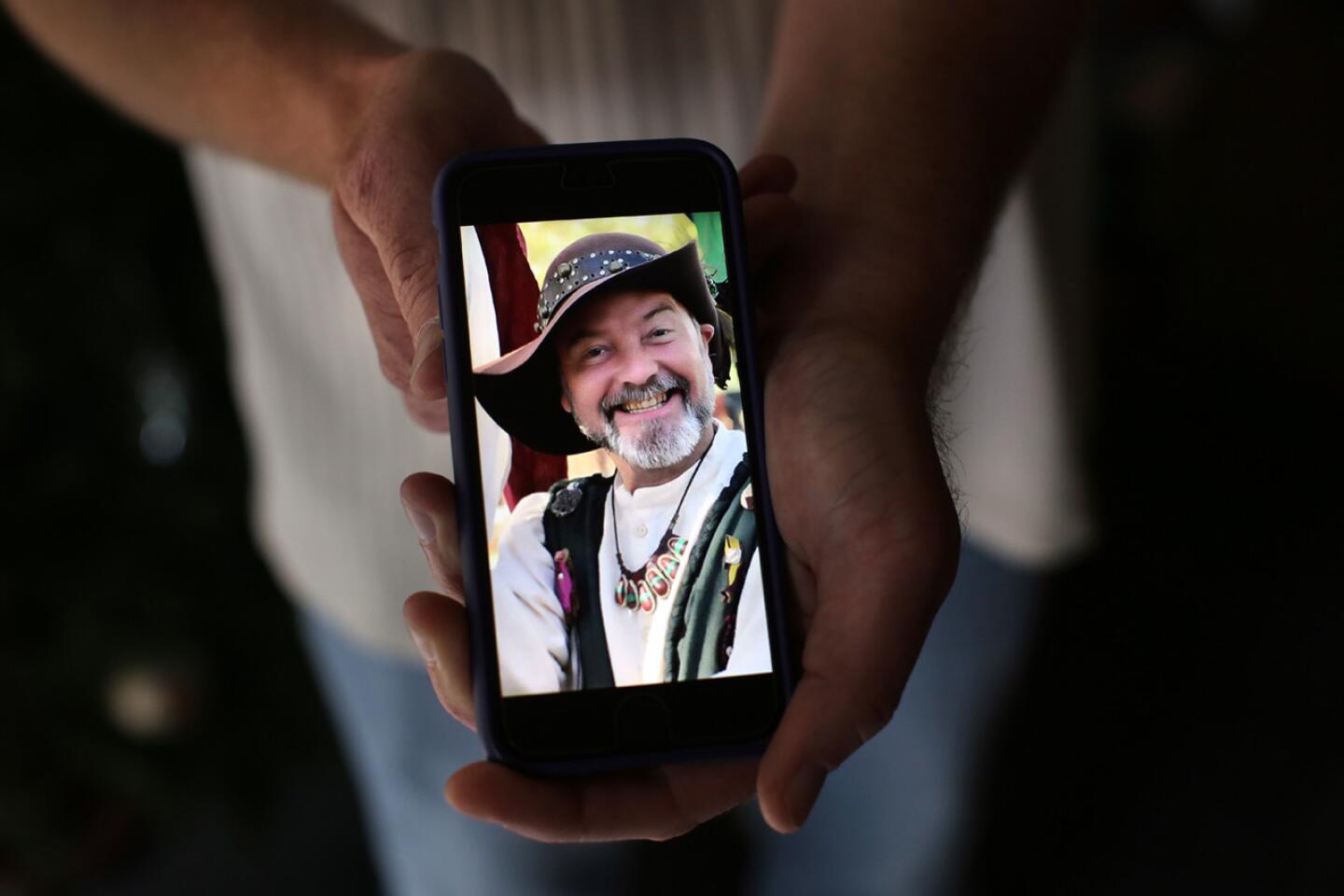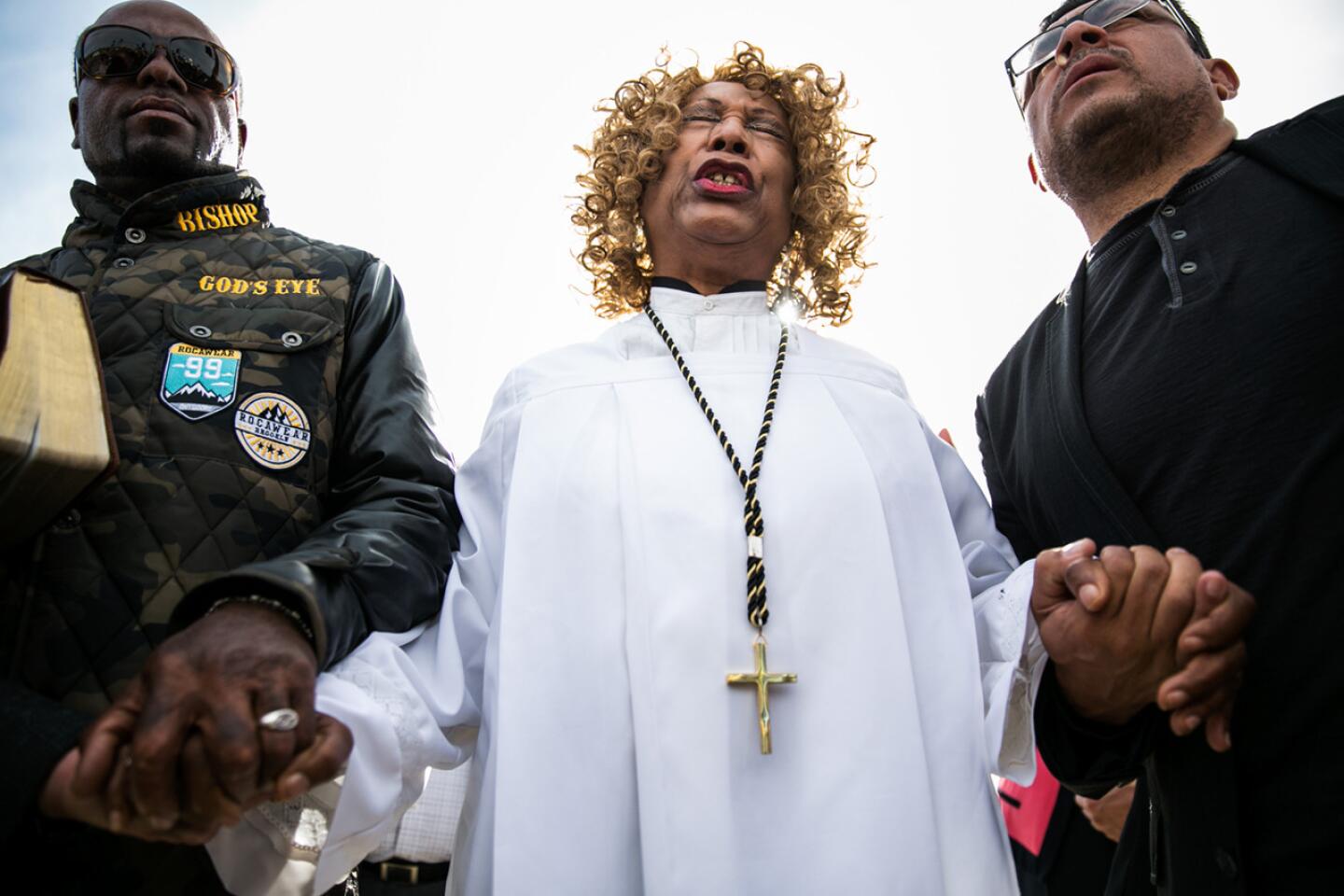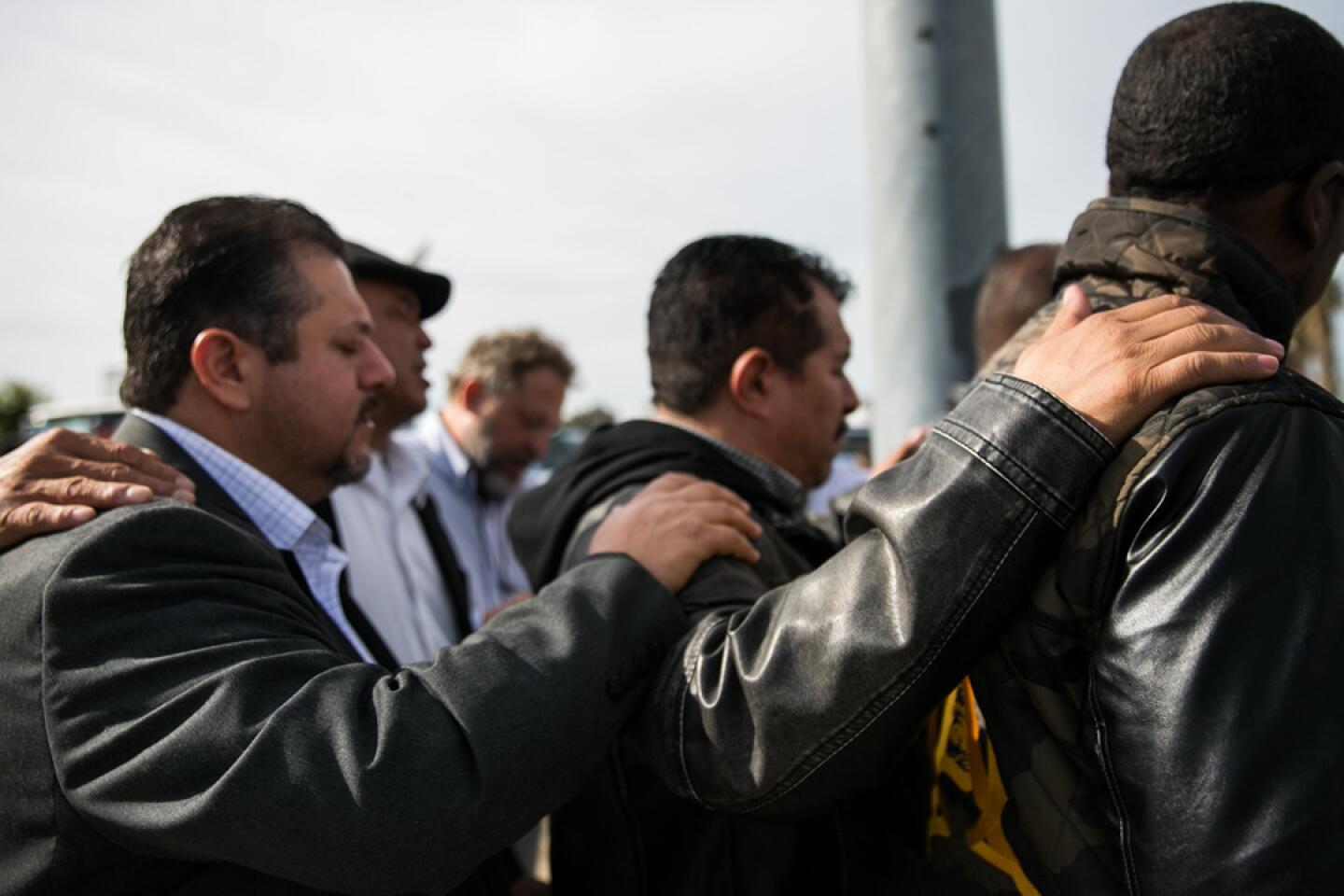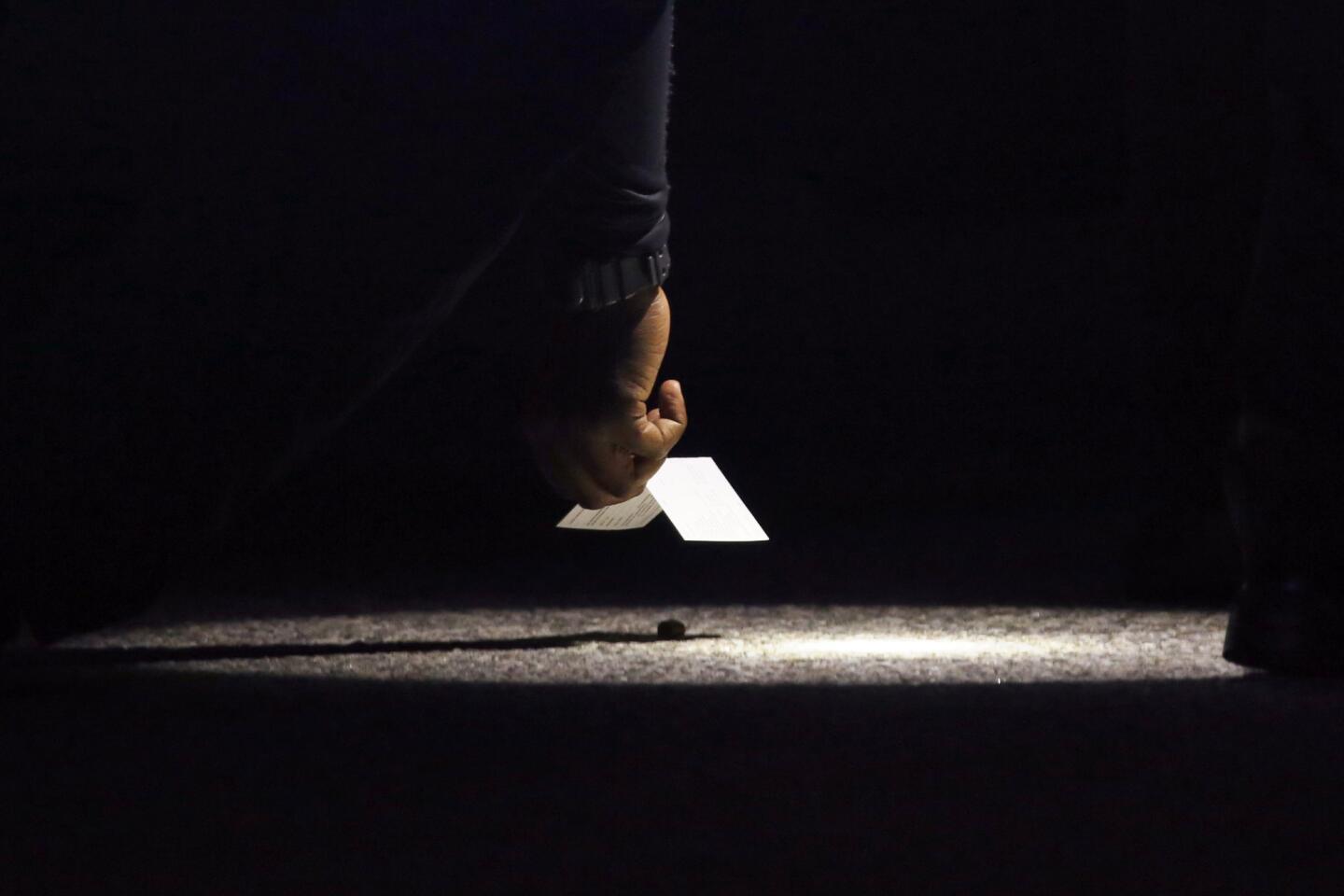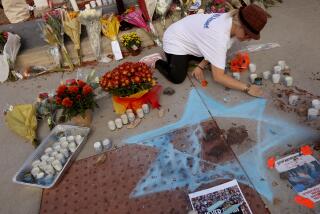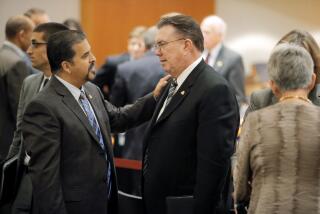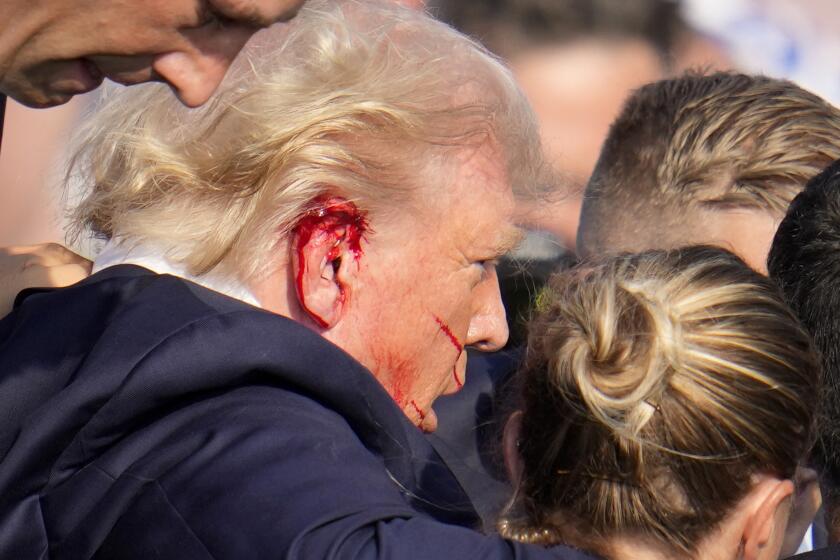U.S. Muslims have to mourn fellow Americans while explaining their faith
Shortly after the news came out that the assailants in the San Bernardino shooting had ties to the local Muslim community, the national leadership of the Islamic Circle of North America gathered on a conference call.
They needed to issue a statement, but as they began to talk, they found themselves pushed into a corner. Yet again they had to explain themselves and their faith to America — when their first instinct was to pray for the victims.
“We are not able to grieve with our fellow Americans when tragedies like this happen,” said Waqas Syed, a director of the organization. “We have to think about defending ourselves and praying that the perpetrators are not Muslim.”
Syed and his colleagues have been here before.
In the years since 9/11, Islamic organizations in America have become increasingly adept at crisis communications.
Just eight hours after the shooting was reported, various Muslim advocacy groups had located one shooter’s brother-in-law and held a news conference condemning the shooters’ actions. Mosques organized vigils and services on behalf of the victims, and Islamic scholars began to work on sermons repudiating gun violence.
Their message is especially sensitive at a time when anti-Islamic sentiment, stoked by the terrorist attacks in Paris and the Syrian refugee crisis, is running high in the United States.
According to a recent poll, 56% of Americans believe that the values of Islam are at odds with U.S. values. Hate incidents against Muslims rose 14% in 2014, according to recently released FBI statistics, which charted a decline in similar cases against other groups.
Authorities are still investigating the motivations of Syed Rizwan Farook and his wife, Tashfeen Malik, for the Wednesday rampage at the Inland Regional Center, but American Muslim leaders were quick to condemn the attack and repudiate any ideology that could justify such violence.
“Please do not implicate Islam or Muslims because, whoever has done that, our faith has nothing to do with that. Our faith is against this kind of behavior,” said Muzammil Siddiqi, religious director of the Islamic Society of Orange County and chairman of the Islamic Shura Council of Southern California.
Yet for the more than 2.5 million Muslims living in the United States, these implications have been unavoidable, cropping up on Facebook status updates, bouncing around Twitter and expressed by politicians.
Even as authorities warned against drawing conclusions about the shooters’ intent, Republican presidential candidate Ted Cruz, a senator from Texas, tweeted that the San Bernardino killings underscored that the U.S. was at a time of war. Fellow candidate Donald Trump, in a speech to the Republican Jewish Coalition, linked the incident to radical Islamic terrorism.
Democrats, in turn, have used the occasion to call for a tightening of the country’s gun laws. Both Hillary Clinton and Sen. Bernie Sanders tweeted in separate messages that gun violence must stop.
Meanwhile, at the mosque in San Bernardino that Farook once attended, security has been increased.
According to Nizaam Ali, 23, a member of Dar Al Uloom Al Islamiyah of America and an acquaintance of Farook’s, the mosque received a death-threat phone message, targeting its members. Ali was concerned especially since young children come to the mosque to study the Koran.
“I hope the community doesn’t backlash,” he said. “We hope and pray that it comes to an end.”
Youssef Maguid, an architecture student at UCLA, shared a similar feeling of uncertainty.
“We hoped and prayed that the attackers wouldn’t be Muslim or Arab, because we knew what would happen after,” Maguid said. “The backlash would open up.”
Ali and Maguid are part of a generation of young Muslim Americans who faced hostility and ridicule in the aftermath of 9/11.
Shortly after the 9/11 attacks, Maguid’s father was laid off and struggled to find a job. He began to use the name “Mo,” instead of Mohamed.
It was, Maguid said, the hardest period of his life, and he is reminded of it every time an act of violence goes viral and its perpetrator is associated with Islam. But Maguid said Muslim American kids today have it much worse.
“With social media and everyone having cellphones, the proliferation of this material is everywhere,” Maguid said. “It’s easier for children to absorb the ignorance and the hatred. The bullying cycle is 24/7 now.”
In an effort to dispel myths about Islam and rebrand its image in America, the Islamic Circle of North America recently placed billboards in nine American cities, including Los Angeles.
While the response within the Islamic community to the shooting has been quick and proactive, some are arguing that changing public sentiment will take more than addressing Islam’s image.
“We have a double burden,” said Amjad Mahmood Khan, a national director for public affairs for the Ahmadiyya Muslim Community in Los Angeles. “We must condemn the attacks and deal vocally with what appears to be the troubling and growing trend of radicalization of Muslims who have hijacked our faith.”
Khan, who is also an adjunct professor of law at UCLA, believes that the Islamic community must be more transparent if it wants to assimilate with American society.
“We don’t want to go down a path where we are scapegoated as a particular community, and we need to be cognizant as a community of the need not to reform Islam or the faith, but the behavior of some radical youth,” he said.
Their numbers may be small, Khan said, but their actions can swiftly change public opinion. He cited Faisal Shahzad, the Pakistani American who was arrested in 2010 for attempting to detonate a car bomb in New York City’s Times Square, and the Tsarnaev brothers, who in 2013 bombed the Boston Marathon.
As Muslims attend Friday prayer, scholars associated with the Islamic Circle of North America recommended that sermons focus on Islamic principles of peace and its teachings against anger.
Yet, for some, the tragedy of Wednesday’s shooting is that these steps need to be taken at all.
“In a perfect world,” said Hussam Ayloush, director of the Los Angeles chapter of the Council on American-Islamic Relations, a Muslim advocacy group, “no community would ever have to comment on or condemn an act just because the perpetrator looks or sounds like or shares a skin color or faith with the rest of the community. That’s not the world we live in today.”
Times staff writer Soumya Karlamangla contributed to this report.
More to Read
Sign up for Essential California
The most important California stories and recommendations in your inbox every morning.
You may occasionally receive promotional content from the Los Angeles Times.
